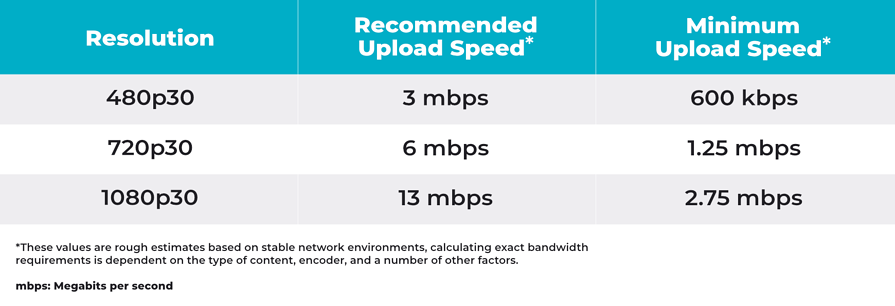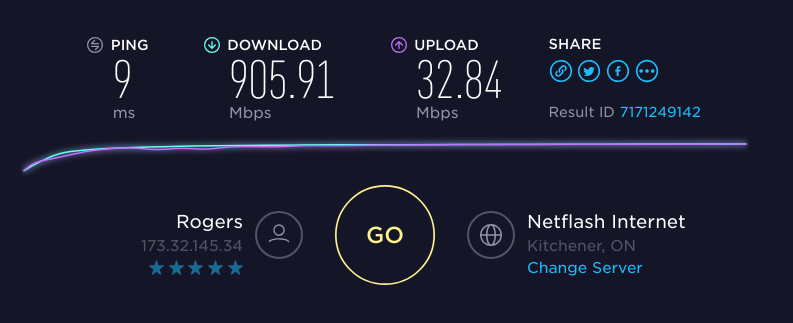Demystifying Megabits Per Second: What Consumers Need to Know
Wiki Article
Exactly How Megabits Per Second Influence Your Online Activities
The principle of megabits per second (Mbps) plays an essential duty in forming our on the internet experiences. As electronic activities multiply, comprehending the implications of Mbps on video gaming, streaming, and video clip conferencing comes to be increasingly essential. Greater Mbps can improve performance and decrease disruptions, while inadequate speeds may foster irritation and ineffectiveness. Analyzing your family's details needs in relationship to these speeds is crucial, especially as multiple gadgets try transmission capacity. The subtleties of how Mbps impacts different online activities require further exploration, specifically as our reliance on digital connection proceeds to develop.Understanding Megabits Per Second
When taking into consideration internet rate, it's vital to recognize the principle of megabits per second (Mbps), which functions as a basic measurement for data transfer prices. This metric measures just how much information can be transmitted over a net connection in one second, giving a clear understanding of performance capacities - Megabits Per Second. For context, one megabit is equivalent to one million bits, and Mbps is frequently used to reveal bandwidth for various on the internet tasksA greater Mbps indicates a quicker internet link, allowing users to carry out jobs such as downloading and install documents, surfing web sites, and taking part in on the internet gaming more effectively. For example, normal browsing calls for around 1-5 Mbps, while streaming high-def video may require 5-25 Mbps. Understanding these requirements is crucial for identifying the suitable web rate needed for certain tasks.
Additionally, the variety of devices attached to a network can affect total efficiency. Numerous customers streaming, gaming, or downloading concurrently can stress readily available bandwidth, resulting in slower rates - Megabits Per Second. Reviewing individual online habits and requirements is important in picking a web plan that lines up with one's demands, ensuring a seamless digital experience
Streaming and Buffering Issues
Streaming high-def material has actually come to be a staple of modern on the internet home entertainment, yet it is frequently gone along with by discouraging buffering concerns. These disturbances can significantly take away from the seeing experience, bring about dissatisfaction and possible loss of target market involvement. Buffering occurs when the data transferred from the streaming service is not received quickly enough to preserve a smooth playback, usually because of not enough net rate determined in megabits per second (Mbps)
Additionally, real-time streaming can be impacted by network congestion, which occurs when numerous gadgets share the exact same bandwidth. Subsequently, enhancing link rate and making certain ample Mbps is vital for a smooth streaming experience. As streaming solutions proceed to progress, check my reference understanding the impact of Mbps on buffering problems continues to be crucial for customers seeking undisturbed entertainment.
Online Pc Gaming Efficiency
The effect of net rate on online tasks prolongs beyond streaming, significantly affecting online pc gaming efficiency. In competitive gaming, reduced latency and high bandwidth are important for a seamless experience. A quick connection lessens lag, allowing players to respond swiftly to in-game occasions, which can be the difference between victory and loss.Bandwidth, determined in megabits per second (Mbps), plays a crucial role in sustaining numerous gadgets and video gaming systems at the same time. Insufficient bandwidth can cause dropped connections or reduced video game high quality, negatively affecting gameplay. On the internet multiplayer video games call for substantial data transfer, especially during peak gaming hours when countless players are online.
Busy first-person shooters require greater rates to maintain responsiveness, while turn-based technique video games might work reasonably well on lower rates. As on-line video gaming continues to develop, with raising visual integrity and more complex multiplayer environments, the need for greater Mbps will only heighten.
Video Clip Conferencing Quality
In today's electronic landscape, video conferencing high quality is greatly affected by internet speed, particularly in regards to transmission capacity and latency. Top notch video clip calls require sufficient transmission capacity to transmit audio and video information flawlessly. Normally, a minimum of 1.5 Mbps upload and download speeds is recommended for typical interpretation video, while high-def video clip conferencing generally demands at the very least 3 Mbps.Latency, or the hold-up in between sending and getting information, also plays an important duty in the customer experience. Low latency guarantees that conversations flow naturally without unpleasant stops check these guys out or disturbances. Preferably, latency should be below 150 nanoseconds for reliable communication. Higher latency can cause resemble, lag, and disjointed interactions, which can hinder cooperation and involvement during meetings.
In addition, several participants in a video clip seminar can stress offered transmission capacity, necessitating also greater rates. Network blockage, typically caused by simultaneous activities like streaming or downloading, can additionally break down video high quality. Therefore, for organizations depending on video conferencing for remote cooperation, recognizing the relationship between megabits per second and general communication high quality is important for maintaining performance and boosting online communications.
Selecting the Right Internet Plan
Picking an ideal web strategy is essential for guaranteeing optimal performance in various online activities, especially in settings that require high data transfer, such as video conferencing and online video gaming. Megabits Per Second. When taking into consideration a net plan, it is crucial to evaluate both the rate and information allowance to match your particular use demandsFor households with several customers engaging in simultaneous activities, a strategy providing higher megabits per second (Mbps) is suggested. Usually, a minimum of 25 Mbps appropriates for basic streaming and browsing, while plans going beyond 100 Mbps are more effective for more intensive tasks. In addition, consider the nature of your online tasks; video conferencing needs a minimum of 1.5 Mbps upload speed, while on the internet video gaming might require a lower latency yet regular connection.
Limitless data plans can stop throttling and interruptions, particularly if hefty usage is expected. By attentively choosing an internet plan customized to your demands, you can improve your online experience, guaranteeing smooth, uninterrupted accessibility to your preferred tasks.
Final Thought
In verdict, the relevance of megabits per second (Mbps) in shaping on the internet tasks can not be overemphasized. An extensive understanding of private or house Mbps requirements is crucial for choosing a suitable net plan that sufficiently sustains diverse online tasks and individual demands.

Normally, a minimum of 25 Mbps is ideal for conventional streaming and surfing, while strategies going beyond 100 Mbps are more effective for more intensive jobs. Additionally, consider the nature of your online activities; video conferencing requires at the very least 1.5 Mbps upload rate, while on-line pc gaming may need a lower latency yet consistent link.
Report this wiki page